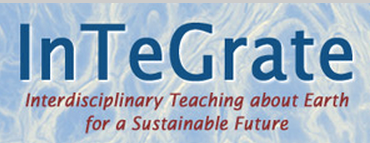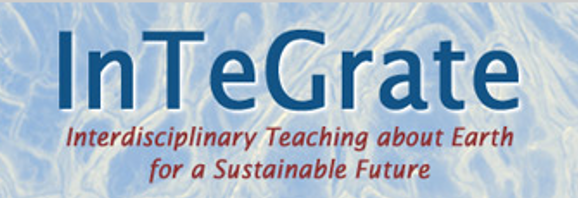InTeGrate FMN (2018)
Overview
|
This is a completed Faculty Mentoring Network (FMN). FMNs are sustained, immersive, community-based professional development opportunities for faculty. FMNs support the adaptation and implementation of materials and/or instructional approaches in their classrooms. Learn more about FMNs. Interested in upcoming FMN opportunities? Sign up for the QUBES Newsletter |
Goals
- Increase amount of data shown in geology classrooms
- Educate faculty members on data skills resources
Mentors
- Jennifer Hanselman, Westfield State University
- Michelle A. Fisher, Three Rivers College, Science Case Net, Prescott College
- T.J. Holmberg, Northwestern Connecticut Community College
Final Products
Adapting InTeGrate Materials for Online Courses
Version: 1.0
As part of my second mentoring of the InTeGrate FMN for QUBES, I chose to focus on my conversion of several resources to an online course format.
Critical Zone Science Part II
Version: 1.0
As part of our effort to model the redwood forest water budget, we used the InTeGrate Unit 5.2 to put numbers to pathways.
Critical Zone Science
Version: 1.0
My class used Water Balance of a Tree (Unit 5.1) to begin quantifying the fundamental pathways for water movement within a forest. The ultimate goal was to model transpiration of the redwood forest on the UC Santa Cruz campus.
I incorporated three units from InTeGrate into my General Biology II class. This document outlines how I used these materials, and what modifications I made to them.
I implemented Unit 5 of the "Climate of Change" module into two weeks of my nonmajors Environmental Science course to cover the concepts of atmospheric science, climate change, and data evaluation.
The Systems Thinking module (Units 1-3) was utilized in two separate introductory biology courses, General Biology II Lab and The Living Environment online course.
The Climate of Change module was implemented in my Introduction to Environmental Sustainability course. We concluded the semester with an in depth examination of climate change, which includes how it is monitored, long and short term climate variability,
The Carbon Cycle, Climate Change, and Feedback Loops
Version: 1.0
I combined material from the Carbon, Climate and Energy Resources Module and the Changing Biosphere Module to help students understand climate change, the carbon cycle, and feedback loops in my intro Ecology class.
: Exploring Geoscience Methods was an excellent capstone experience for Elementary Education Majors. The class I used this module with was 24 students of various backgrounds and academic preparation. I introduced this exercise as a capstone in the last th

